|
Former AUC Provost Lisa Anderson Named President
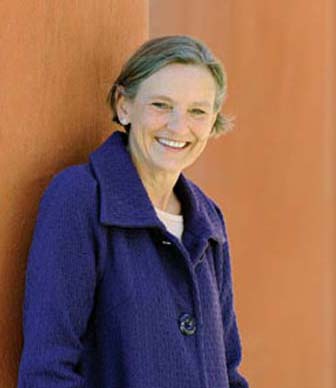 Photographed by Dana Smillie
Lisa Anderson (CASA '76), who has
served as the University's provost
since 2008, has assumed the position of
AUC president since January 2011.
Prior to joining AUC as its chief
academic officer, Anderson served as
the James T. Shotwell Professor of
International Relations at Columbia
University, as well as the former dean
of the School of International and
Public Affairs at Columbia. Prior to
that, she served as chair of Columbia's
political science department and
director of the Middle East Institute
there. Before joining Columbia, she
was assistant professor of government
and social studies at
Harvard University.
Richard A. Bartlett,
chair of the University's
Board of Trustees, noted
that Anderson is uniquely
suited for this position.
"Dr. Anderson is a
renowned scholar,
recognized internationally
for her research and
scholarship on politics in
the Middle East and
North Africa," Bartlett
said. "In addition, she is a
highly skilled
administrator and leader
who has made significant
contributions to the
University since being
appointed provost,
including the creation of
the University's first
PhD program, the
establishment of three
new schools and building
the size and quality of
the faculty."
Bartlett pointed out that
Anderson has become the
University's 11th president at a critical
time in its history. "The University," he
said, "has completed its move to the
new campus and is now turning its
attention to ensuring that it utilizes
both of its campuses –– AUC New
Cairo and AUC Tahrir Square –– to
provide our students with the highest
quality education from leading
international faculty."
Anderson noted, "I am honored by
the confidence the Board of Trustees
has extended to me in making this
appointment, and I look forward to
working with them closely as we
make AUC the center of excellence
in higher education in the Middle
East." She also thanked her
predecessor for the contributions he
has made to the University. "As we
all look to AUC's future, it is with
deep appreciation for the
contributions President Arnold has
made to this University."
Anderson is the author of Pursuing
Truth, Exercising Power: Social Science
and Public Policy in the Twenty-first
Century (Columbia University Press,
2003) and The State and Social
Transformation in Tunisia and Libya,
1830 - 1980 (Princeton University
Press, 1986); editor ofTransitions to
Democracy (Columbia University Press,
1999); and coeditor of The Origins of
Arab Nationalism (Columbia 1991).
She is the past president of the Middle
East Studies Association, chair of the
board of directors of the Social
Science Research Council, as well as
former member of the Council of the
American Political Science Association
and AUC's Board of Trustees. In
addition, Anderson serves on the
board of the Carnegie Council on
Ethics in International Affairs; is a
member emerita of the board of
Human Rights Watch, where she
served as co-chair of Human Rights
Watch/Middle East; and is a member
of the Council on Foreign Relations.
Anderson holds a BA from Sarah
Lawrence College, an MA in law and
diplomacy from the Fletcher School at
Tufts University and a PhD in political
science from Columbia University,
1981, where she also received a
certificate from the Middle East
Institute. Anderson, a graduate of
AUC's Center for Arabic Study
Abroad, was awarded an honorary
Doctor of Laws from Monmouth
University in 2002.
Board of Trustees Elects Richard Bartlett
as New Chair
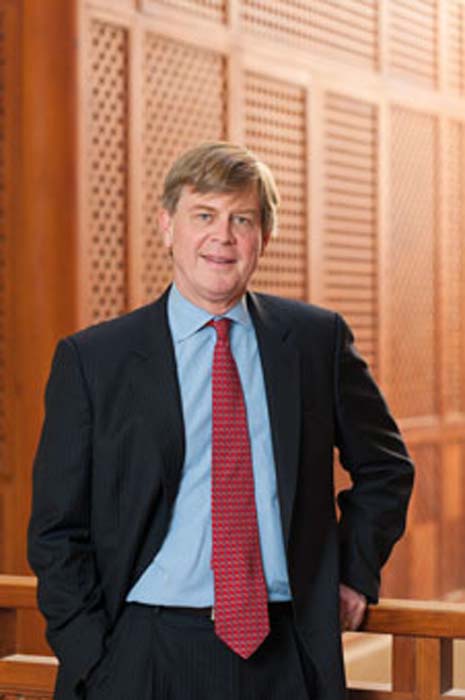 Photographed by Ahmad El-Nemr
AUC's Board of Trustees has elected Richard A. Bar tlett as its chair man. Bartlett, who
succeeds B. Boyd Hight, is managing director of Resource Holdings, Ltd., a private equity
fir m in New York City.
In making the announcement, Hight noted that Bartlett has been active and involved
with
AUC since his childhood, when his father Thomas A. Bartlett served as the president of AUC
from 1963 to 1969. The senior Bar tlett has ser ved as inter im president dur ing the 2002 - 2003
academic year. "The University has long been fortunate to have the Bartlett family engaged in its
development," said Hight. "The board is pleased that Richard has ag reed to take responsibility for
the chair manship, and we are confident that together with the University's new president, Lisa
Anderson, AUC will continue to serve as a center of excellence in the Middle East."
Bartlett was appointed to the board in 2003, and has been chair of the investment committee
since 2006. He received his JD from Yale Law School and his BA from the Woodrow Wilson School of Public and
International Aff air s at Princeton University. Pr ior to joining Resource Holdings, he served as a law clerk to Supreme Court
Justice Harry A. Blackmun, and prior to that, as a law clerk on the U.S. Circuit Cour t for the Distr ict of Columbia. He is a
member of the Council on Foreign Relations and ser ves on the board of several private companies.
Bartlett is assuming the chairmanship as the Univer sity also welcomes its new president, Lisa Anderson. "I am honored by
the board's tr ust in me, and I look forward to working with Dr. Anderson as we continue the work of President David
Ar nold and Boyd Hight," Bartlett said. "I have tremendous admiration and respect for the leadership that David and Boyd
have provided over the past seven years to the University, and it is on their successes that Lisa and I will continue to enhance
the University and its global stature."
Cairo Review Tackles Global Policy Issues
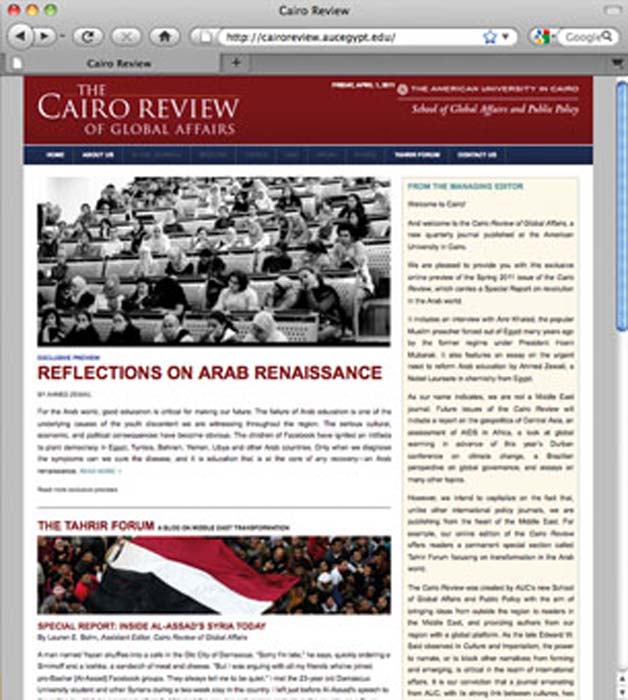
The newly launched quarterly
journal, The Cairo Review of
Global Affairs, is the latest ambitious
endeavor by the School of Global
Affairs and Public Policy (GAPP).
Ambassador Nabil Fahmy '74, '77,
GAPP dean and chair of the editorial
board of The Cairo Review, said that
the journal is intended to bring the
insights of global policymakers,
academics, public officials, journalists
and others into the Middle East. "We
also want it to be an interactive
platform that gives perspectives from
the region a greater voice in
international policy conversations and
debates," said Fahmy.
The journal features essays by
prominent international
commentators, interviews with world
leaders and a section called Midan
that discusses global affairs topics
related to AUC. There is also a
section where policy experts review
recently published books.
The printed journal is
supplemented by a Web site
(www.thecairoreview.com) that
includes specific online articles, op-ed
pieces, bloggers and video content to
be produced by students in AUC's
journalism and mass communication
department. The journal and Web site
will place an emphasis on featuring
Middle Eastern writers. "Other parts
of the world should have their way of
presenting the debates," explained
Scott Macleod, the journal's managing
editor, professor of practice at AUC's
journalism and mass communication
department, and former Middle East
correspondent for TIME Magazine.
"Given AUC's unique position at the
crossroads, we want to use this
position to be a platform to present
and write about global issues with a
Middle Eastern accent."
Medhat Haroun Serves as AUC Provost
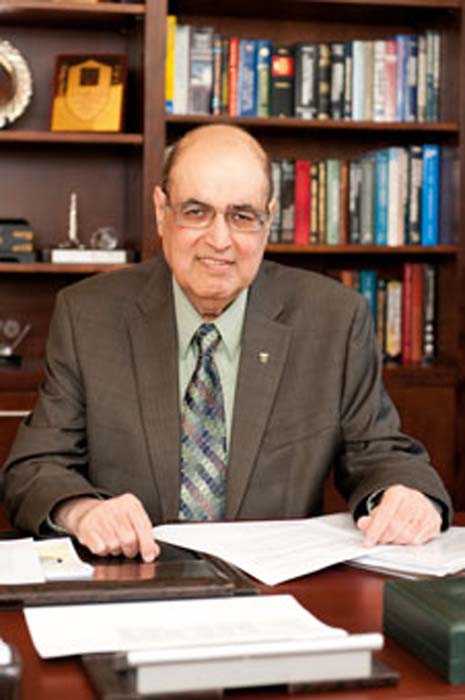 Photographed by Ahmad El-Nemr
Former dean of the School of Sciences and Engineering (SSE), Medhat Haroun
has recently been named AUC provost. An accomplished engineer, Haroun is
clear about the goals he has established for his position: increased collaboration
between AUC's six schools, optimizing the academic experience at the University
and extending AUC's reach as a global partner in higher education and research.
"First," he noted, "I want to improve collaboration between the schools and identify
means of streamlining and simplifying University bureaucracy in schools, departments
and programs. Second, I want to build upon the excellent education offered at AUC
by emphasizing research to further engage the faculty and secure greater funding for
their research endeavors. Finally, I want to increase collaboration with our sister
Universities in Egypt, the region and internationally."
Having served as SSE dean since 2005, Haroun succeeded in generating
significant external funding for the school, including multi-million dollar grants
from the King Abdullah University of Science and Technology to fund scholarships and research. He is also responsible for
establishing new degree programs at SSE, including undergraduate majors in architectural, computer and petroleum
engineering, and master's degrees in biotechnology, nanotechnology and food chemistry. In addition, Haroun is credited
with launching AUC's first PhD program in applied sciences and engineering, and has acquired corresponding funding for
fellowships and research. An advocate of interdisciplinary study, he has also established academic collaborations within AUC
and beyond, particularly with the School of Business and School of Global Affairs and Public Policy.
Haroun is the recipient of the Walter Huber Civil Engineering Research Prize and the Martin Duke Award for his research
in earthquake engineering. Most recently, he accepted the 2010 Excellence in Academic Achievement Award from AUC.
Ezzat Fahmy Appointed Dean of Sciences and Engineering
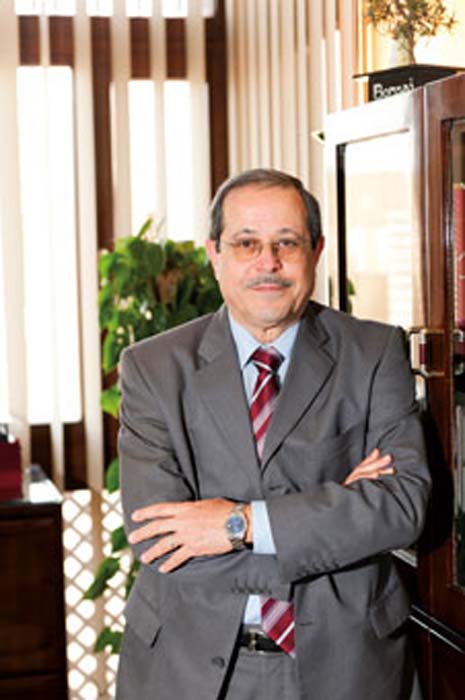
For Ezzat Fahmy, new dean of the
School of Sciences and
Engineering, laying out a vision for his
tenure is easy. "As dean, my main focus
will be to continue the success that SSE
has enjoyed and to assess the new
programs, in particular the PhD
programs," said Fahmy, who brings
considerable administrative experience
to the position. Fahmy previously
served as associate dean for
undergraduate studies at the School of
Sciences and Engineering, where he is
professor of structural engineering.
Since joining AUC in 1989, Fahmy
played a key role in the establishment
and accreditation of the construction
engineering program. He served as the
construction engineering unit head and
chair of the Department of
Engineering in the 1990s before
becoming director of interdisciplinary
engineering programs in 2001. Before
joining AUC, he taught at McMaster
University in Ontario, Canada and at
the University of Qatar. He has
published widely and has consulted on
projects as varied as restoration of
Islamic monuments and new residential
developments in Egypt and abroad.
Fahmy's proudest moments at AUC
have been in helping to guide the
successful integration of the science and
engineering departments. "To convince
the Board of Trustees to approve the
PhD programs means we have
successfully proven that we have the
facilities, faculty and interested students
necessary to make this program into
the focal point that it should be," he
said, adding that he anticipates the
creation of other new degree programs
and hopes to increase research funding.
AUC Offers New Master's Degrees in Different Specializations
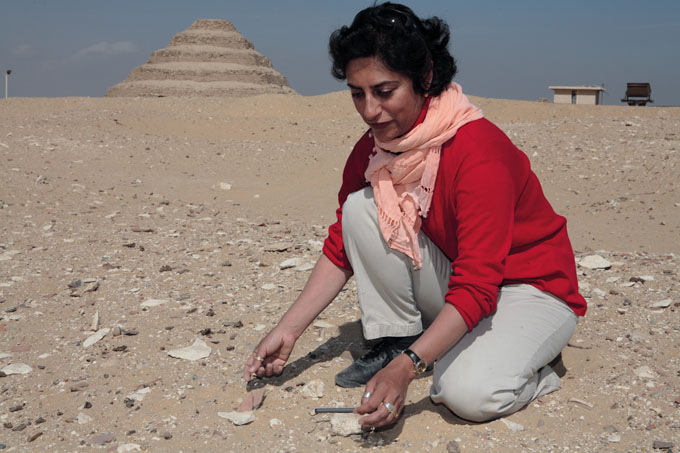
As part of its commitment to
enhancing educational
opportunities, AUC has launched new
master's degrees in international and
comparative education, nanotechnology
and Egyptology/Coptology.
After a successful inaugural year,
AUC's Graduate School of Education is
offering a new master's degree program
in international and comparative
education, drawing more than 26
students in its first semester. "The new
MA represents a milestone for the
University, since it is the first graduate
education degree at AUC," said Samiha
Peterson, distinguished professor and
interim dean of the school. "This is a
very significant contribution to Egypt's
educational reform priorities."
AUC has also launched this fall a
Master of Science in nanotechnology,
which prepares its graduates with the
skills necessary to compete and excel in
the ever-expanding world of
nanotechnology. The program is
distinguished by top-notch faculty with
extensive expertise in nanosciences and
nanotechnology; state-of-the-art
facilities, including equipment and
software packages necessary for
synthesis of nanomaterials, design and
modeling of nanostructured bulk
products processing technologies; as
well as fabrication and characterization
of micro and nanosensors and devices,
which are housed in the Yousef Jameel
Science and Technology Research
Center and various AUC departments.
"The program, being one of the first
nanotechnology programs offered
locally and in the Middle East, will act
as an incubator for highly qualified
scientists, engineers and researchers
serving locally and regionally in the
various institutes, research centers and
industries in the 21st-century fields of
nanosciences and nanotechnology," said
Hanadi Salem '83, '87, professor of
mechanical engineering and director of
the nanotechnology program.
The University is also launching in
September 2011 a new master's
program in Egyptology/Coptology,
which will follow international
guidelines for similar degrees at
accredited institutions in the United
States. Candidates for the program may
pursue one of three tracks: Egyptology
with a concentration in art, archeology
and history; Egyptology with a
concentration in language study and
written documentation relating to
religion, sciences, literature or
economics; and Coptology, the study of
ancient Egypt's native Christian society,
particularly during the early history of
Christianity and its interaction with,
and legacy to, the world in Late
Antiquity and Early Medieval ages.
"Although Universities based in the
Western world offer very good
programs and many fieldwork
opportunities, none match what AUC
offers in terms of sustained exposure
to the legacy of ancient Egyptian
civilizations," explained Salima Ikram,
professor of Egyptology at AUC.
"Studying daily against the backdrop
of the pyramids and other monuments
makes for a learning experience that
cannot be replicated outside of Egypt."
AUC Earns National and International Accreditation 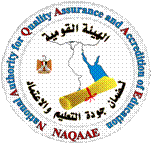
Aspiring to the highest standards of education both nationally and internationally, AUC has received accreditation
from Egypt's National Authority for Quality Assurance and Accreditation of Education (NAQAAE). In doing so,
AUC has become the first University in Egypt to acquire such accreditation from NAQAAE, a body created by the
government in 2007 to establish quality standards for its educational institutions.
In addition, the International Association for Continuing Education and Training (IACET) has awarded AUC's School
of Continuing Education full accreditation, making it the first accredited school in Egypt. IACET is the only standardsetting
organization approved by the American National Standards Institute for continuing education and training to
offer IACET Continuing Education Units.
|
